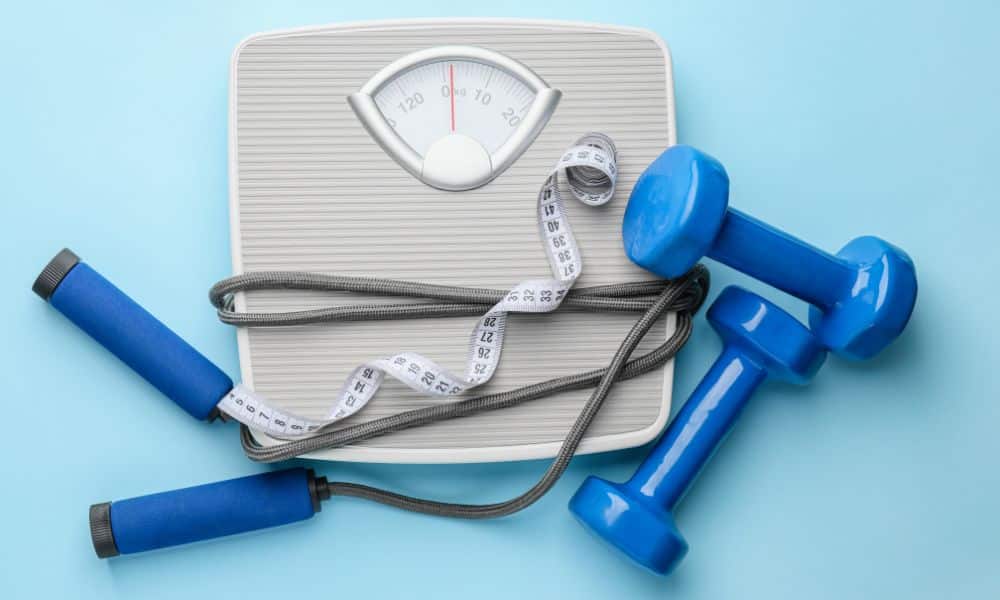Weight loss drugs have become increasingly popular as people seek faster, more convenient ways to shed pounds. However, as with any medication, there are potential side effects, some of which are severe. One concern that has surfaced recently is the risk of stomach paralysis (gastroparesis) associated with certain weight loss drugs.
In this article, we’ll explore whether weight loss drugs can cause stomach paralysis, what the symptoms are, and how to make informed decisions when considering these medications.
What Is Stomach Paralysis (Gastroparesis)?
Gastroparesis, also known as stomach paralysis, is a condition in which the stomach muscles are unable to contract properly, leading to delayed emptying of food into the small intestine. This causes a variety of symptoms, including:
- Nausea and vomiting
- Feeling full after eating only a small amount
- Bloating and abdominal pain
- Fluctuations in blood sugar levels
The delayed gastric emptying makes digestion slower and can lead to nutritional deficiencies. In severe cases, it can greatly impact quality of life, causing discomfort and limiting food intake.
How Weight Loss Drugs Can Lead to Stomach Paralysis
Certain weight loss drugs, particularly those that affect the GLP-1 receptors, have been linked to an increased risk of stomach paralysis. Drugs like semaglutide (Wegovy) and liraglutide (Saxenda), which belong to the class of GLP-1 receptor agonists, are commonly used to aid weight loss by reducing hunger and slowing down digestion.
However, this mechanism of slowing down digestion, while helpful in promoting satiety, can also cause gastroparesis in some individuals. Here’s how:
- Reduced Gastric Motility: GLP-1 receptor agonists slow the stomach’s ability to push food into the small intestine, which can lead to food staying in the stomach for longer periods.
- Exacerbation of Underlying Conditions: People with underlying gastrointestinal conditions, such as diabetes (which is a common cause of gastroparesis), may be at a higher risk of developing stomach paralysis when using these medications.
According to a study published in Diabetes Care, individuals using GLP-1 receptor agonists for weight loss or diabetes management experienced delayed gastric emptying, which could exacerbate gastroparesis symptoms. This can be particularly concerning for those with pre-existing digestive issues.
Which Weight Loss Drugs Are Linked to Stomach Paralysis?
Several weight loss drugs have been linked to delayed stomach emptying or stomach paralysis, including:
- Semaglutide (Wegovy, Ozempic): These medications, used for both weight loss and type 2 diabetes management, work by slowing digestion to promote feelings of fullness. This delay can contribute to stomach paralysis in some users.
- Liraglutide (Saxenda): Also a GLP-1 receptor agonist, liraglutide is similarly linked to delayed gastric emptying and may increase the risk of gastroparesis.
- Pramlintide: Another drug that slows gastric emptying, this medication is sometimes used alongside insulin to help control blood sugar in diabetics, but it can also affect digestion and increase the risk of stomach paralysis.
While these drugs have been effective for weight loss, they should be used with caution, particularly for individuals who already have gastrointestinal issues or diabetes, as they may worsen or trigger gastroparesis symptoms.
Symptoms of Stomach Paralysis Caused by Weight Loss Drugs
If you are taking weight loss drugs and are concerned about stomach paralysis, watch out for the following symptoms:
- Persistent nausea
- Vomiting undigested food hours after eating
- Abdominal bloating or discomfort
- Early satiety (feeling full after eating only small amounts)
- Unintended weight loss due to difficulty eating
If you experience any of these symptoms, it’s important to contact your healthcare provider immediately. They may recommend stopping the medication or adjusting the dosage to minimize side effects.
Managing the Risks of Weight Loss Drugs and Stomach Paralysis
While the risk of stomach paralysis exists with some weight loss drugs, it can often be managed through careful monitoring and lifestyle adjustments. Here’s how to reduce the risk:
1. Consult with Your Doctor
Before starting any weight loss medication, particularly those that affect digestion, consult your doctor. Those with diabetes or existing gastrointestinal issues should be particularly cautious, as they may already be at higher risk for gastroparesis.
2. Start with a Low Dose
If your doctor approves the use of a GLP-1 receptor agonist, it’s essential to start at a lower dose and gradually increase it. This approach allows your body to adjust to the drug and may reduce the risk of developing stomach paralysis.
3. Monitor Your Symptoms
Pay close attention to how your body reacts to the medication. If you experience any signs of stomach paralysis, such as prolonged nausea or bloating, report these symptoms to your doctor. They may adjust your treatment plan accordingly.
4. Adjust Your Diet
People who are at risk for stomach paralysis may need to modify their diet. Eating smaller, more frequent meals that are low in fiber and fat can help reduce the workload on your digestive system. Liquid or pureed foods may also be easier to digest.
Related Article: 5 Signs You Need to Adjust Your Weight Loss Plan
Alternatives to Weight Loss Drugs That Carry a Risk of Stomach Paralysis
If you’re concerned about the risk of stomach paralysis from weight loss drugs, there are other ways to manage your weight without impacting your digestive system. Here are some alternatives:
- Dietary Changes: Focus on a balanced, nutrient-rich diet that promotes a calorie deficit. Prioritizing high-protein, high-fiber foods can help you feel fuller without relying on medication.
- Exercise: Regular physical activity, including both cardiovascular exercise and strength training, can help you burn calories and maintain a healthy weight. Increasing your non-exercise activity thermogenesis (NEAT)—the calories burned from daily activities like walking or cleaning—can also play a role in effective weight loss.
Related Article: How NEAT Can Help You Lose Weight - Behavioral Therapy: Cognitive-behavioral therapy (CBT) can help address the mental and emotional aspects of overeating, making it easier to stick to a healthy eating plan and reduce cravings.
Conclusion
While some weight loss drugs can be effective in helping people shed pounds, the risk of stomach paralysis is a serious concern, especially for those with pre-existing digestive issues or diabetes. Stomach paralysis can lead to uncomfortable and sometimes severe symptoms, including nausea, vomiting, and bloating.
Before starting any weight loss medication, consult with your healthcare provider to understand the risks and benefits. If you experience symptoms of gastroparesis while on these drugs, speak with your doctor to adjust your treatment or explore alternative options for weight management.
By staying informed and taking precautions, you can reduce the risk of side effects while still working toward your weight loss goals.
Key Takeaways:
- Certain weight loss drugs, particularly GLP-1 receptor agonists, can cause stomach paralysis by slowing down digestion.
- Symptoms of gastroparesis include nausea, vomiting, bloating, and early satiety.
- To minimize the risk, consult with a doctor, start with a low dose, and monitor symptoms.
- Alternatives to weight loss drugs include dietary changes, exercise, and behavioral therapy.
For more information on medications and their side effects, visit the Mayo Clinic and WebMD.




